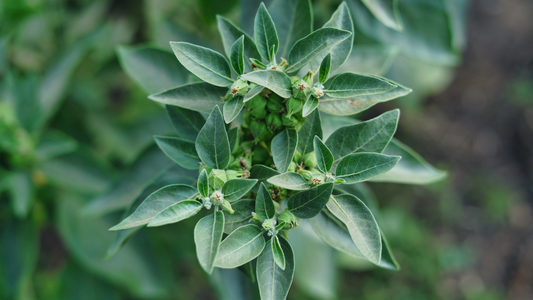- Blog
- Is Shilajit banned? All facts about the legal situation 2024

Is Shilajit banned? All facts about the legal situation 2024
Shilajit banned? Legal situation in Germany and important facts
The natural substance Shilajit fascinates with its unique properties and centuries-old tradition. Contrary to widespread assumptions, this substance is not banned in Germany. As a natural product from the mountainous regions of Asia, Shilajit is gaining increasing attention among health-conscious individuals. The legal situation sometimes appears opaque, which is why a careful examination of the facts is necessary.
Legal status of Shilajit in Germany
Shilajit is legally available in Germany and is subject to the regulations for dietary supplements. The Federal Office of Consumer Protection and Food Safety monitors the import and distribution. Compliance with quality standards and correct labeling of the products are crucial for marketability.
The legal classification as a dietary supplement also means that no therapeutic claims may be made. Distributors must adhere to the strict requirements of the Health Claims Regulation. These regulations serve to protect consumers and ensure the safety of the product.
Shilajit as a dietary supplement: What you need to know
The classification as a dietary supplement comes with specific requirements. Manufacturers must demonstrate that their products meet purity requirements and are free from contaminants. Laboratory analyses regularly check the composition and the content of active ingredients.
Sales require registration with the Federal Office for Consumer Protection. Particularly important are the details regarding dosage and possible interactions. Consumers benefit from this strict regulation as it ensures the safety of the products.
Quality standards and admission criteria
The quality control of Shilajit follows strict European guidelines. Laboratories examine the raw materials for heavy metals, microbiological contamination, and other potential impurities. The standardization of the ingredients plays a central role in this process. In particular, the content of fulvic acids and humic acids is precisely determined.
Admission criteria include the complete documentation of origin and processing. Importers must demonstrate compliance with EU regulations for dietary supplements. The examination of product safety is carried out according to established protocols. Regular inspections ensure consistent quality.
Spread of misinformation about a Shilajit ban
Misunderstandings about an alleged ban on Shilajit often arise from confusion with other substances or incorrect translations of foreign regulations. Research shows that these rumors are often based on outdated information or a lack of understanding of the legal situation.
Consumers should instead refer to official sources. The responsible authorities provide clear information. Reputable providers can present corresponding certificates and permits. The transparency of the supply chain plays an important role in this.
Safety and quality when purchasing Shilajit
What to look for when buying
High-quality Shilajit is characterized by specific features. Look for a complete product declaration with information on ingredients and origin. The packaging should be airtight and lightproof to maintain effectiveness. Certifications from independent testing laboratories provide additional security.
The price often provides insight into quality. Especially cheap offers should be critically examined. The manufacturing processes of high-quality products are complex and correspondingly costly. A detailed description of the extraction and processing methods indicates reputable suppliers.
Conclusion: Legal Situation and Responsible Consumption
The legal situation of Shilajit in Germany is clear: The natural substance is not subject to any ban. However, as a dietary supplement, products must meet strict quality requirements. Responsible use of Shilajit requires knowledge of the correct application. Choosing reputable sources forms the basis for safe use.
The development of the market shows increasing interest in traditional natural substances. Quality assurance and consumer protection are becoming increasingly important. Informed decisions require a solid understanding of origin, quality, and application.


